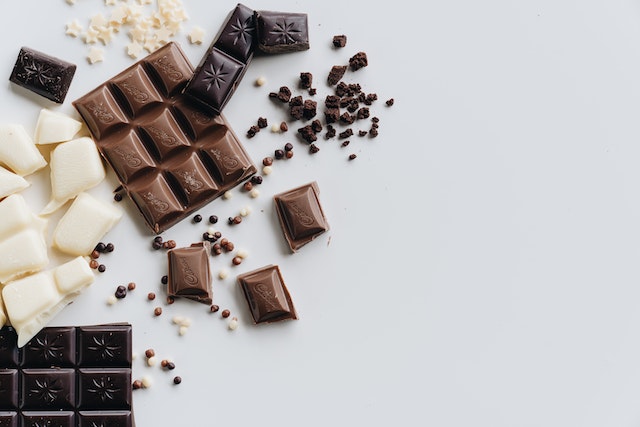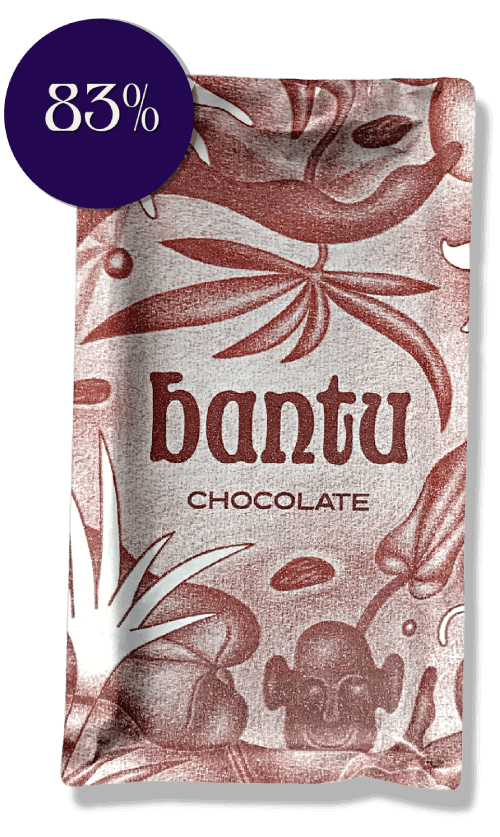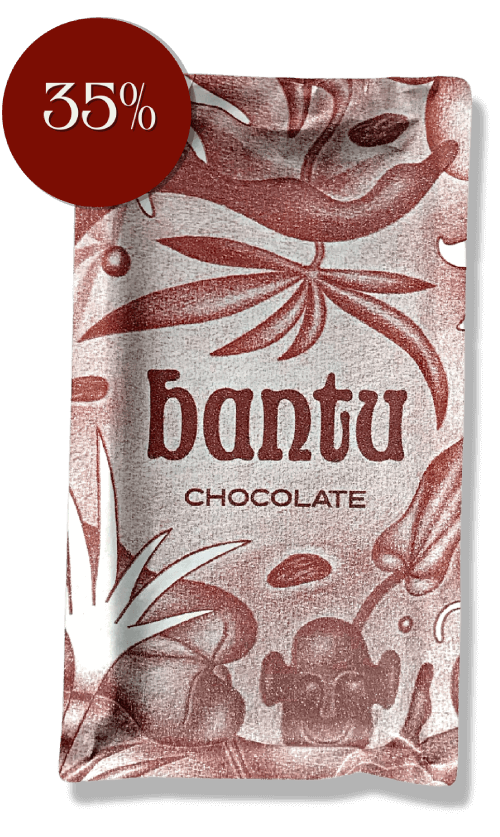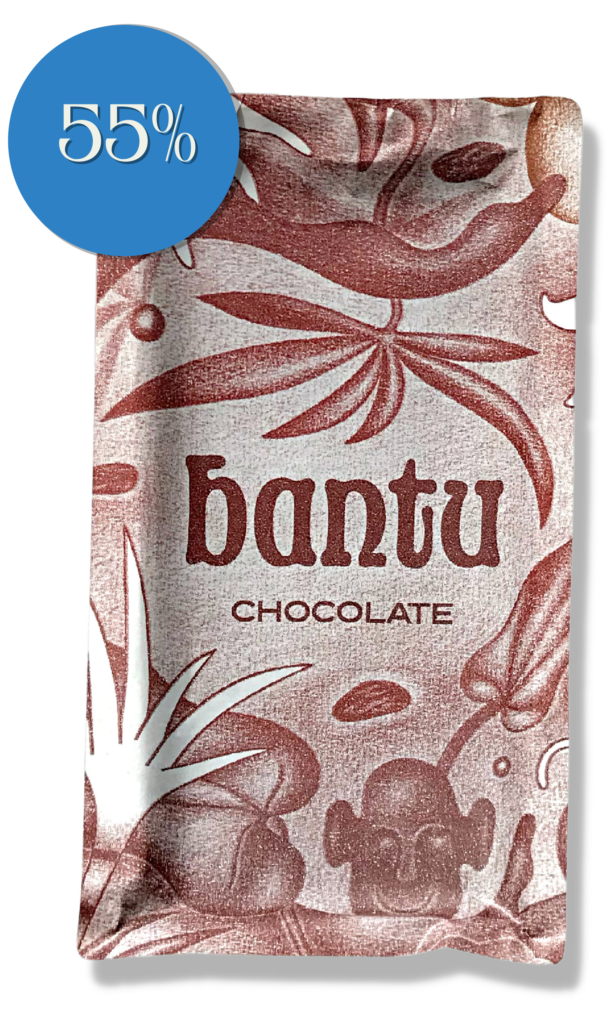
Ceremonial Cacao: What It is and How to Make It
May 6, 2024
Beverage Adaptogens vs. Caffeine: Which is Good for You?
May 6, 2024Calories in Chocolate
How to Fit Chocolate into Your Diet
Chocolate comes in different types and ingredient compositions: dark, milk, and white, plus inclusions like berries, nuts, soy lecithin, etc. As such, the number of calories in chocolate is not standard. For example, a bar of dark chocolate does not have the same number of calories as milk chocolate because the ingredients are not the same.
Even with the same type of chocolate, calories still differ based on the amount of cacao solid, oil, and sugar. The calories in 66% dark chocolate are not the same as in 73% or 83%.
Therefore, there’s no straightforward answer to the question of how many calories are in, say, 100g of chocolate.
This article looks at approximate calories in different types of chocolates and offers you tips on how you can still enjoy the world’s favourite treat even if you’re counting calories.
Don’t get carried away by the number of calories only. Also, pay attention to the individual ingredients as the body metabolises calories from different macronutrients differently.
Calories in 100g Dark Chocolate
Dark chocolate is chocolate without milk. It can come in as many percentages of cacao content as a chocolate maker wants, from as low as 35% to as high as 85%. Depending on the percentage of cacao, dark chocolate has different amounts of cacao butter, added sugar, and, therefore, different amounts of calories.
According to the USDA, 100g of plain dark chocolate contains approximately 546 calories shared between the three macronutrients as follows: fats (31g), proteins (4.9g), and net carbohydrates (54g). For more accurate calorie tracking, check product labels as ingredient composition varies. Here’s how some of dark bean-to-bar chocolates compare in terms of calories and macronutrients in 100g.
|
Dark Chocolate bar |
Calories in 100g |
Total Fat |
Saturated Fat |
Protein |
Carbs |
Sugar |
|
Bantu Chocolate – Voodoo Intense Dark 83% |
592kcal |
46g |
29.2g |
10g |
21.3g |
17.2g |
|
Taza Chocolate – Mexicano Super Dark 85% |
606kcal |
45g |
26.3g |
13g |
37g |
16g |
|
Chocolat Madagascar – 85% Fine Dark Chocolate |
550kcal |
43g |
26g |
13g |
27g |
15g |
|
Pump Street – Ecuador 85% Dark |
496kcal |
42.2g |
24.8g |
10.7g |
41.8g |
15g |
Product info may change. Always check product labels.
Calories in 100g of White Chocolate
White chocolate is technically not real chocolate because it does not contain cacao solids (the nonfat portion of the cacao bean). It is made with only cacao butter and sweetener.
100g of white chocolate has 539 calories. Fats (32g), proteins (6g), and net carbohydrates (58.8g)
For better accurate calorie tracking, check product labels as ingredient composition varies. Here’s how our white chocolate, Nostradamus 35% compares against other white chocolates of almost the same cocoa butter percentage.
|
White chocolate bar |
Calories in 100g |
Total Fat |
ge. Fat |
Protein |
Carbs |
Sugar |
|
Bantu Chocolate – Nostradamus 35% White Chocolate bar |
615kcal |
48.6g |
33.1g |
1.67g |
38.8g |
27.1g |
|
Dormouse – Madagascar Toasted White 38% |
610kcal |
44.2g |
26.5g |
6.1g |
46.1g |
46.1g |
|
Latitude – Semuliki, Uganda White Chocolate |
629kcal |
49g |
43g |
9g |
43g |
Not stated |
|
ÓBOLO – Pangoa, Peru 37% White |
620kcal |
45g
|
28g |
8g |
42g |
42g
|
Product info may change. Always check product labels
35% white chocolate. 547 calories, 48.6g Fat, 1.6g Protein, 38.8g Carbs, 27.1g Sugar
Calories in 100g of Milk Chocolate
Like dark chocolate, milk chocolate also comes in various percentages of cacao solids, cacao butter, and added sugars besides milk.
100g of milk chocolate has 535 calories. Fats (30g), proteins (8g), and net carbohydrates (55.6g)
This is a mere general caloric overview of milk chocolate as individual products differ. For example, here’s the calorie and macronutrient content in 100g of Bantu Chocolate’s Limbe 55% Milk Chocolate compared with other milk chocolates of [almost] the same cacao percentage.
|
Milk chocolate bar |
Calories in 100g |
Total Fat |
Saturated Fat |
Protein |
Carbs |
Sugar |
|
Bantu Chocolate – Limbe 55% (non-dairy) Coconut Milk Chocolate |
689kcal |
37.1g |
24.7g |
5.9g |
42.8g |
34.6g |
|
602kcal |
47.4g |
28.4g |
12.5g |
35.4g |
32.5g |
|
|
489kcal |
33.9g |
19.8g |
6.8g |
51.7g |
31.8g |
|
|
591kcal |
42.6g |
26.5g |
9.1g |
40.5g |
37g |
Product info may change. Always check product labels.
Because of the wide variations in product ingredient compositions, simply stating a general caloric content based on the type of chocolate is not enough. Let’s now look at how some popular chocolates in the UK and US compare in terms of their calories and macronutrients.
Calories in Some Popular Chocolate Bars in the UK and US
|
Chocolate |
Calories per 100g |
Total Fat |
Saturated Fat |
Proteins |
Total carbs |
Sugars |
|
Mars bar |
448kcal |
17g |
8.03g |
4.5g |
69g |
60g |
|
Cadbury’s Boost |
513kcal |
28g |
21.6g |
5.2g |
59g |
52g |
|
Nestle’s Quality Street |
471kcal |
20.7g |
12.0g |
3.3g |
67.3g |
58g |
|
Nestle’s Munchies |
488kcal |
23.3g |
12.7g |
4.1g |
64.9g |
57.6g |
|
Snickers |
516kcal |
29g |
9.4g |
9.7g |
54g |
45g |
|
Hershey’s Milk Chocolate |
511kcal |
30g |
18.6g |
6.9g |
60g |
58g |
|
KitKat Wafer Bar |
522kcal |
27.5g |
15g |
6.51g |
62.5g |
50g |
|
Reese’s Fast Break Bar |
450kcal |
21.5g |
|
7.8g |
62.7g |
52.9g |
Sources: USDA and product pages. Consumers should always consult product packaging for accurate information.
Let’s move on now to the big issue with calories in chocolate. Weight gain or weight loss?
Calories in Chocolate and Weight Gain/Loss
To know whether chocolate can make you gain or lose weight, you first need to understand the basics of weight loss/gain.
Your body gets energy from food to fuel its activities. The total daily energy expenditure (TDEE) is the amount of energy (in calories) your body needs every day. This TDEE varies according to your activity level, meaning an active lifestyle with exercise needs more energy than a sedentary lifestyle.
To gain weight, you have to eat more than your total daily energy expenditure over time. That is, more calories in than calories out over a long time. To lose weight, you eat less than your TDEE over time. As your weight changes, your TDEE also changes, meaning you adjust your daily calorie needs accordingly to continue gaining weight.
So can you gain weight from eating chocolate? The simple answer is yes and no, it depends.
Chocolate can make you gain weight if you eat high-calorie chocolate daily alongside other calorie-dense foods. Weight gain or weight loss is all about calorie surplus or calorie deficit, regardless of macronutrients or even what many people call their metabolism rate. A ‘fast metabolism’ simply means you need more calories, and a ‘slow metabolism’ means you need fewer calories.
You can gain or lose weight on any kind of diet by regulating the number of calories you take in. If you’re not losing or gaining weight, you may be wrongly calculating your required total daily calories or incorrectly tracking them. Unfortunately, many TDEE calculators are mere estimates.
Another question you need to consider is whether you should be gaining weight mainly from chocolate? The NHS advises against using high sugar content foods for weight gain. Chocolate should be part of a healthy diet plan for weight gain, and not your main food for weight gain. Use chocolate to up your daily calorie intake, but not too much that your counter doesn’t have room for nutrients from other food sources.
Eat Chocolate Without Gaining Weight
An intense love for chocolate is not synonymous with weight gain, even if the chocolate you eat is high in sugar and calories. You can eat chocolate every day without gaining weight as long as you count calories and do not exceed your required total daily calorie intake. Weight gain, weight loss, or weight maintenance are more about calories-in vs. calories-out. But ensure you’re not overindulging one macronutrient to the detriment of the others. Try to get balanced eating, even if your diet plan requires more of one macronutrient than the others.
If you love eating chocolate every day and want to stop the scale from adding extra pounds, first determine your TDEE, then get a calorie tracking app and some self-discipline, and monitor your weight.
How to Fit Chocolate into Your Diet
Except for zero-carb (carnivore) and Paleo diets, you can fit chocolate into any healthy diet, regardless of whether your goal is to gain, lose, or maintain weight.
We’ll look at specific diets in a minute. For now, it’s important to get a general summary of how to fit chocolate into your diet.
1. First determine your total daily energy expenditure (amount of daily calories you need for your activity level)
2. Track your daily calorie consumption
3. Fit the calories from chocolate into your daily intake
4. Monitor your weight. Pay more attention here because calorie and macro trackers are not always 100% accurate. Trust your scale more than you trust food-tracking apps
5. Repeat steps 1-4 over time according to the changes you get from your scale
Now on to how to fit chocolate into specific diets.
1. Keto and Other Low-Carb Diets
On low-carb diets, you don’t only track calories, but more importantly, you also track net carbohydrates. Especially if you’re on keto, you need to keep to a tiny amount (20-50g of net carbs) to stay in ketosis.
Your choices are (in order of low-carb friendliness):
· Minimally processed zero carb and keto-friendly chocolates.
· 100% dark chocolate. Though this type of chocolate contains no added sugar, you still need to track net carbs because the cacao from which chocolate is made also contains carbohydrates.
· A suitable alternative would be at least 70% dark chocolate like Bantu Chocolate’s 83% intense dark bar which has only 27.5g sugar in 100g. Or you can still eat regular chocolate with care. Check product labels for the amount of carbohydrates and figure out the portion size that enables you to still stay below your daily carb limit.
2. Vegan Diet
Can vegans eat chocolate? Of course, yes. There are a thousand and one creamy vegan alternatives to dairy milk chocolate that use plant-based milk, like coconut milk, almond milk.
Here at Bantu Chocolate, all our chocolates are vegan friendly. We use coconut milk for our delicious 55% Milk Chocolate. SPREAD THE WORD, our palm oil-free vegan chocolate spread, is a great alternative to palm oil-dense, dairy Nutella.
3. The Mediterranean Diet
Rich in heart-friendly flavanols, chocolate has a place in the Mediterranean diet of fruits, vegetables, nuts, whole grains, and heart-healthy fats.
To fit chocolate into a Mediterranean diet lifestyle, go for chocolate with a high cacao and low sugar content. 100% dark chocolate is ideal if you can tolerate the bitter taste. If not, you can still get chocolate with a lower cacao content. Check out our mouthwatering ethical dark bars containing 73% and 83% of cacao.
4. The Standard American Diet
Also known as the Western Diet, the SAD relies heavily on highly processed, mass-produced foods, usually high in added sugars and sodium. The diet excludes healthy foods like fruits, vegetables, and whole grains. It’s an unhealthy way of eating, with NutritionFacts.org reporting a rating of 11/100.
The health risks associated with SAD are oxidative stress from free radicals which increases your chances of developing cardiovascular disease and cancer. The high amounts of sugar in fast foods also expose you to obesity, diabetes, and other complications.
Get rid of highly processed foods, including chocolates that barely have cacao. Instead, go for chocolates that use all the content of the cacao bean with fewer additives and healthy inclusions. Your best bet will be to avoid the mass market and seek ethical chocolate brands, preferably bean-to-bar or craft chocolate with a high cacao content.
Check out our dark bars.
|
Dark Chocolate bar |
Calories in 100g |
Fat |
Protein |
Carbs |
Sugar |
|
592kcal |
46.3g |
9.2g |
21.3g |
17.2g |
|
|
565kcal |
39.7g |
8.4g |
30.9g |
27.2g |
|
|
547kcal |
37.7g |
7.1g |
37.3g |
34.2g |
Which Chocolates are High in Calories in the UK and US?
The typical chocolate you come across has between 450 to 550 calories in 100g, which depending on serving size, can be 225-275 calories per bar. While assessing the nutritional content of almost 100 varieties of chocolate bars, MailOnline found brands with as high as 380 calories per bar.
According to MailOnline’s report, chocolate bars with the highest caloric content include:
|
Chocolate bar |
Calories per bar |
Total Fats |
Saturated Fat |
Proteins |
Carbs |
Sugar |
|
Cadbury Double Decker Duo Chocolate Bar 74.6g |
342kcal |
12.8g |
6.6g |
2.8g |
54g |
40g |
|
Yorkie Raisin & Biscuit Duo Chocolate Bar 66g |
336kcal |
17g |
9.6g |
3.6g |
41.4g |
38g |
|
Twix Xtra White Chocolate Biscuit Twin Bars 75g |
376kcal |
19g |
11g |
3.8g |
48g |
36g |
|
Twix Chocolate Bar 75g |
370kcal |
|
|
|
|
|
|
Twix Salted Caramel Xtra Twin Bars 75g |
368kcal |
18g |
10.5g |
3.2g |
48.7g |
36.7g |
Always check product labels, as information may change.
Chocolate Bars with Zero or Low Calories
Using alternative sweeteners, sugar-free chocolates ensure consumers on low-carb or keto diets continue to enjoy their delicious treat. Though they’re the best alternative in terms of carbs, you also need to consider the amount of processing a low-carb or zero-carb chocolate went through and other ingredients added.
Though it has no sugar, low-carb chocolate may still have trans-fat if the product went through a lot of processing or other oils were added apart from cacao oil. Trans fat clog arteries, increasing the risk of heart attack and death. Daily use of artificial sweeteners have also been linked to higher risk of cardiovascular accidents and heart disease.
Effects of Eating Chocolate Every Day
Besides being a good source of fats, protein, and carbohydrates, cacao is also rich in flavonoids, vitamins, and minerals which gives chocolate many of its health benefits when consumed regularly.
Several studies have shown that eating chocolate every day in healthy amounts can offer many health benefits, such as:
· Lowers risk of heart disease and stroke.
· Lowers blood glucose levels.
· May lower the risk of cancer.
· Promotes brain function.
· Nourishes the body.
· Improves mood.
LEARN MORE: Benefits of Cacao for Skin, Heart, Brain, and More
It’s crucial to recognise that while chocolate offers health benefits, it’s not a free pass to overindulge. While you can safely eat chocolate every day, how much you eat (along with your overall diet plan) matters as much as the frequency of chocolate consumption. Eat too much chocolate on an untracked Western diet and you’re sure to see the numbers on the scale go up.
Final Thoughts on Chocolate Calories and Weight
Chocolate can be high or low in calories, depending on the type of chocolate, the quantity of its ingredient, inclusions, and additives. Whether you gain weight or lose weight, eating chocolate every day is a result of your overall calorie intake. You can include chocolate into nearly every diet as long as you track your calories and stick to your required daily calorie needs. Very strict diets like keto may require diet-friendly chocolates.
References:
https://thefitness.wiki/weight-loss-101/
https://thefitness.wiki/faq/what-is-more-important-for-weight-loss-calories-or-macros/
https://www.nhs.uk/live-well/healthy-weight/managing-your-weight/healthy-ways-to-gain-weight/
Chocolate Extinction: Fact vs. Fiction + What Chocolate Lovers Can Do
Chocolate ExtinctionFact vs. Fiction, What Consumers Can Do Share On Facebook Twitter Email Is the world really running out of chocolate? Not really. Currently the global […]
Corporate Chocolate Gifting Ideas to Appreciate Employees and Delight Clients
Corporate Chocolate GiftingHow to Appreciate Employees & Delight Clients Share On Facebook Twitter Email When it comes to corporate gifting, a one-gift-fits-all approach just doesn't cut […]
Cacao Supper Club at Home: Guide to Tasting Chocolate, Cacao Tea, and Pulp Juice
Cacao Supper Club at HomeGuide to Tasting Chocolate, Cacao Tea, and Pulp Juice Share On Facebook Twitter Email Imagine gathering around the table with a few […]








